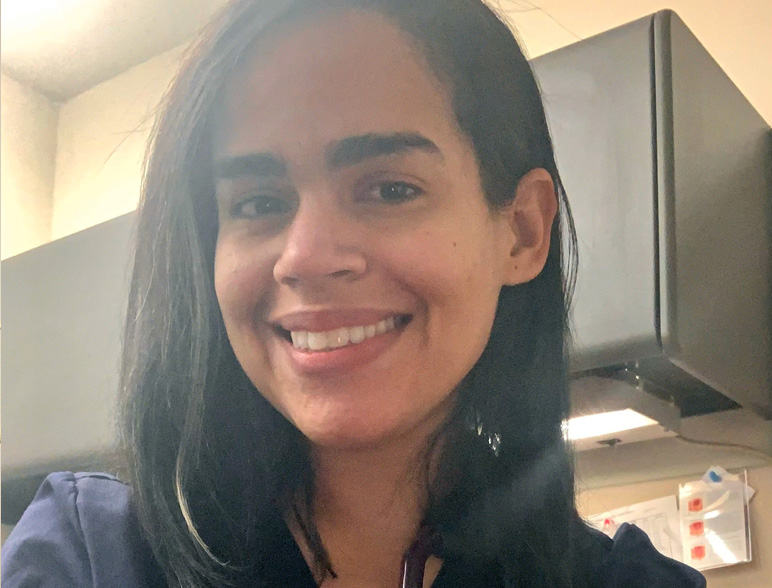Healing Wounds Through Patient-Centered Care
Passionate about helping people heal, Karla Dyson, RN, leads The New Jewish Home Manhattan’s wound care program.
Residents and post-acute patients at The New Jewish Home are fortunate to have Karla Dyson, RN, on their team. Karla leads Jewish Home’s Manhattan wound care program with enthusiasm and dedication.
The most frequent wounds Karla treats are pressure ulcers, surgical wounds, diabetic wounds and vascular wounds. In the long-term care unit, she said, only about ten percent of patients require wound care, “because The New Jewish Home has excellent prevention procedures.” Twenty to thirty percent of post-acute patients need wound care services as they come to us directly from the hospital, mostly for post-surgery rehabilitation.
Karla was a community health nurse when she developed a passion for working with older adults—and an interest in wound care. “Nurses love to heal!” she said. “Wounds are amazing because you can see when they heal. It’s so gratifying.”
In November 2019, she was hired by The New Jewish Home, where her wound care treatment and assessment skills were recognized and she was selected to lead a new wound care program. Karla explained that her job involves staging and monitoring wounds, making recommendations on treatment, and working with different disciplines to prevent wounds and enhance care.
On a typical day, she arrives at Jewish Home and checks to see if a staff member has reported that a resident has a wound. She’ll then evaluate the resident, try to figure out what caused the wound to occur, and create a plan to promote healing. Throughout the day, she sees residents whose wounds are not healing or show signs of infection, and intervenes to address these problems.
An important part of Karla’s job is training patients who are being discharged, and often their family members as well, to care for wounds at home. She begins by helping patients get comfortable looking at their wound. “Then I show them how to treat the wound. Next, I have the patients demonstrate the process to make sure they’re following infection control techniques and applying dressings correctly.” If patients aren’t able to do it themselves, she will educate family members or arrange for a visiting nurse.
“Wound care teaching is an ongoing process,” Karla said. “The nurses are instructing patients as they do wound care, explaining what they’re doing and what to look out for in terms of healing and signs of infection.”
Perhaps one of Karla’s most important skills is her resourcefulness at overcoming obstacles to success. “One of my patients was a woman with two painful wounds on her lower leg. I made sure she was premedicated, and I allowed her to set the pace of her wound care. We established a relationship, connecting through music. While I was doing wound care, she would play music for me to ease her stress, and I would give her suggestions on what to play next. It almost became like a date with a friend! She was more compliant because of all this, and her wound healed.”
In another case, Karla needed to train a woman to care for a wound that her husband couldn’t reach himself, but there was a significant language barrier. “She would watch me and take notes, then I guided her using nonverbal cues,” Karla said. Together, they found a solution.
“My work is very patient centered,” she said. “Each treatment is specific to that patient and that wound. There’s no one-size-fits-all, and that’s why I like it. You have to get to know people, understand their pain level, and know what their wound is responding to. It’s so exciting—there are so many different treatments. It’s extremely gratifying when you see that your patient is no longer in pain, no longer at risk for infection.”
The New Jewish Home has a proud legacy of empowering older adults to live with purpose and enhanced well-being. We’ve been around since 1848 as one of the nation’s first nursing homes, and now serving older New Yorkers of all backgrounds through a portfolio of health care services, including post-acute care and rehabilitation, skilled nursing, adult day care, assisted living, and at-home care.
See how we continue to elevate health care for older adults through our Research Institute on Aging and our SkillSpring program (formerly known as Geriatrics Career Development program), which empower teens and young adults to begin careers in health care.

